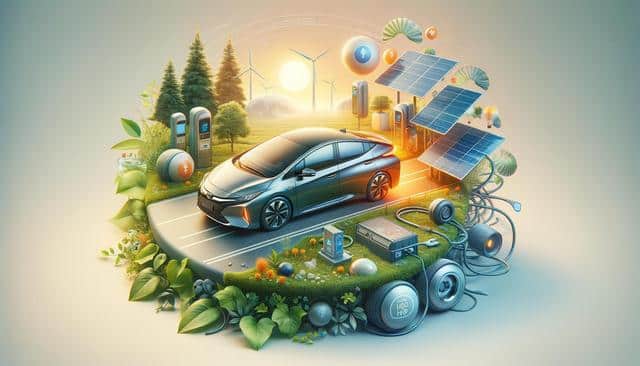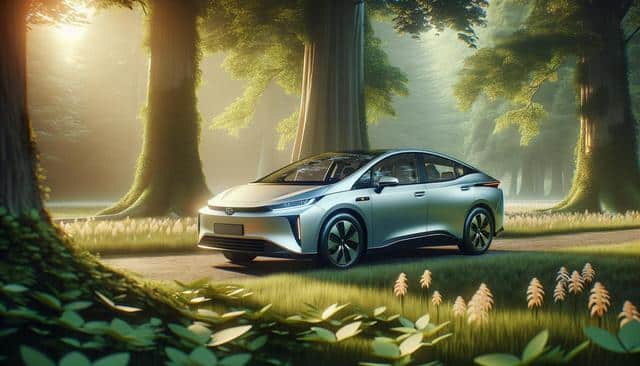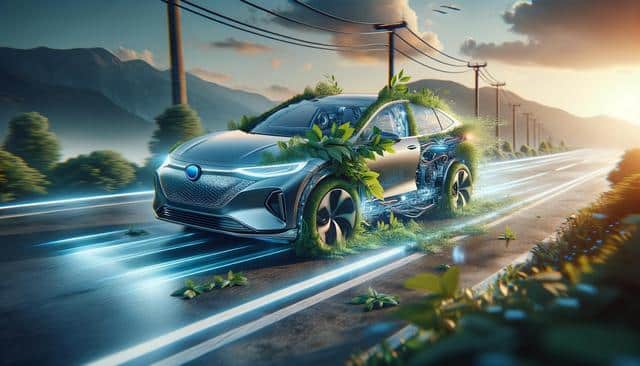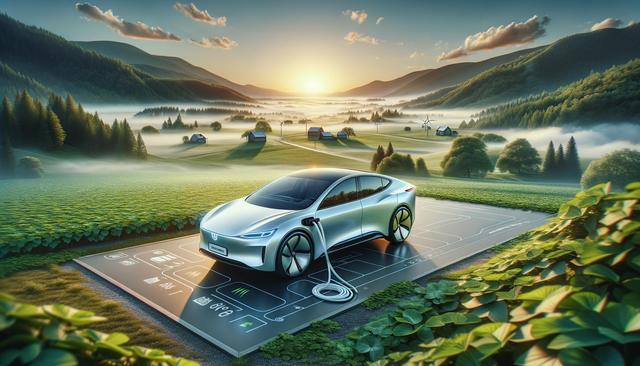
Exploring the Rise of Hybrid Cars: A Smarter Drive Forward
What Are Hybrid Cars and How Do They Work?
Hybrid cars are vehicles that use a combination of an internal combustion engine and one or more electric motors to power the vehicle. This dual-system approach is designed to maximize fuel efficiency while reducing emissions. Unlike fully electric vehicles, hybrids do not need to be plugged in to recharge. Instead, they recharge their batteries through regenerative braking and by using the engine itself. The result is a more efficient drive that adapts to various driving conditions.
There are several types of hybrid systems, including:
- Full hybrids: Can drive using only electricity for short distances.
- Mild hybrids: Use electric power to support the engine but cannot drive on electricity alone.
- Plug-in hybrids: Can be charged via an outlet and have a larger battery for extended electric-only driving.
This combination of technologies allows hybrid vehicles to switch between power sources or use them simultaneously, depending on the situation. This innovation contributes to better fuel economy and a smoother driving experience. More information can be accessed through trusted resources like this link.
The Environmental Benefits of Hybrid Vehicles
One of the primary reasons many drivers consider hybrid cars is the positive impact they have on the environment. Because hybrids use less fuel and emit fewer pollutants compared to traditional gasoline-powered cars, they play a role in reducing the overall carbon footprint of transportation. This makes them an appealing choice for environmentally conscious individuals looking to make a difference.
Some notable environmental benefits include:
- Lower greenhouse gas emissions.
- Reduced air pollutants such as nitrogen oxides and particulate matter.
- Improved fuel economy, resulting in fewer fossil fuels being burned.
In urban settings, where stop-and-go traffic is common, hybrids excel by utilizing electric power more frequently. The regenerative braking system also reduces wear and tear on brake components, further minimizing waste. To explore more about this technology and its advantages, check out this resource.
Cost Considerations and Long-Term Savings
While hybrid cars may have a higher initial purchase price compared to conventional models, they offer significant savings over time. Fuel efficiency is often the most cited benefit, as hybrid drivers typically spend less on gasoline. Additionally, many governments offer tax incentives or rebates for purchasing hybrid models, which can help offset the upfront cost.
Long-term financial benefits include:
- Reduced fuel costs.
- Lower maintenance expenses due to less engine wear and regenerative braking systems.
- Potential eligibility for government incentives.
It’s also worth noting that hybrid car batteries have become more durable over the years, with many models offering extended warranties. As technology continues to improve, the cost gap between hybrids and traditional vehicles continues to narrow, making hybrids a more accessible option for many drivers. Learn more about potential savings at this site.
Driving Experience and Performance
Many drivers are surprised by the smooth and quiet experience of operating a hybrid vehicle. Thanks to the electric motor, hybrids often start silently and transition seamlessly between power sources. This results in a refined driving experience that many owners appreciate, especially in city environments.
Performance-wise, hybrid cars have come a long way. Modern hybrids offer ample acceleration and responsive handling, with some models even integrating performance-tuned systems to appeal to more dynamic drivers. Key performance features include:
- Instant torque from electric motors for quick starts.
- Adaptive power management for fuel efficiency.
- Advanced driving modes for different conditions (e.g., Eco, Sport, EV-only).
Hybrid technology also contributes to a quieter cabin, particularly during low-speed driving, enhancing overall comfort. The versatility in driving modes allows users to tailor their experience based on their preferences and road conditions. More detailed insights can be found at this link.
The Future of Hybrid Technology
As the automotive industry continues to evolve, hybrid cars are expected to play a crucial role in the transition toward cleaner and more efficient transportation. While fully electric vehicles are gaining popularity, hybrids serve as a practical bridge for those not yet ready to make the full switch to electric. Manufacturers are investing heavily in hybrid R&D, resulting in improved technologies and broader model availability.
Future developments in hybrid technology might include:
- More efficient battery systems with longer lifespans.
- Smarter energy management software.
- Expanded infrastructure for plug-in hybrid charging.
For consumers, this means more choices and better performance without compromising on sustainability. Hybrid vehicles are becoming more mainstream, and their acceptance is growing across a wide range of demographics. To stay updated on future innovations and offers, visit this resource.
Conclusion: Is a Hybrid Car Right for You?
Hybrid cars offer a compelling combination of fuel efficiency, reduced emissions, and advancing technology. Whether you’re seeking to lower your environmental impact, save on fuel costs, or simply enjoy a modern driving experience, hybrids present a versatile solution. They are particularly suitable for city dwellers, frequent commuters, and anyone interested in making a gradual shift toward greener transportation. As more models become available and technology continues to improve, hybrids are likely to remain a strong choice for those looking to balance performance with sustainability. For more details about hybrid options and potential benefits, consider checking this site.


